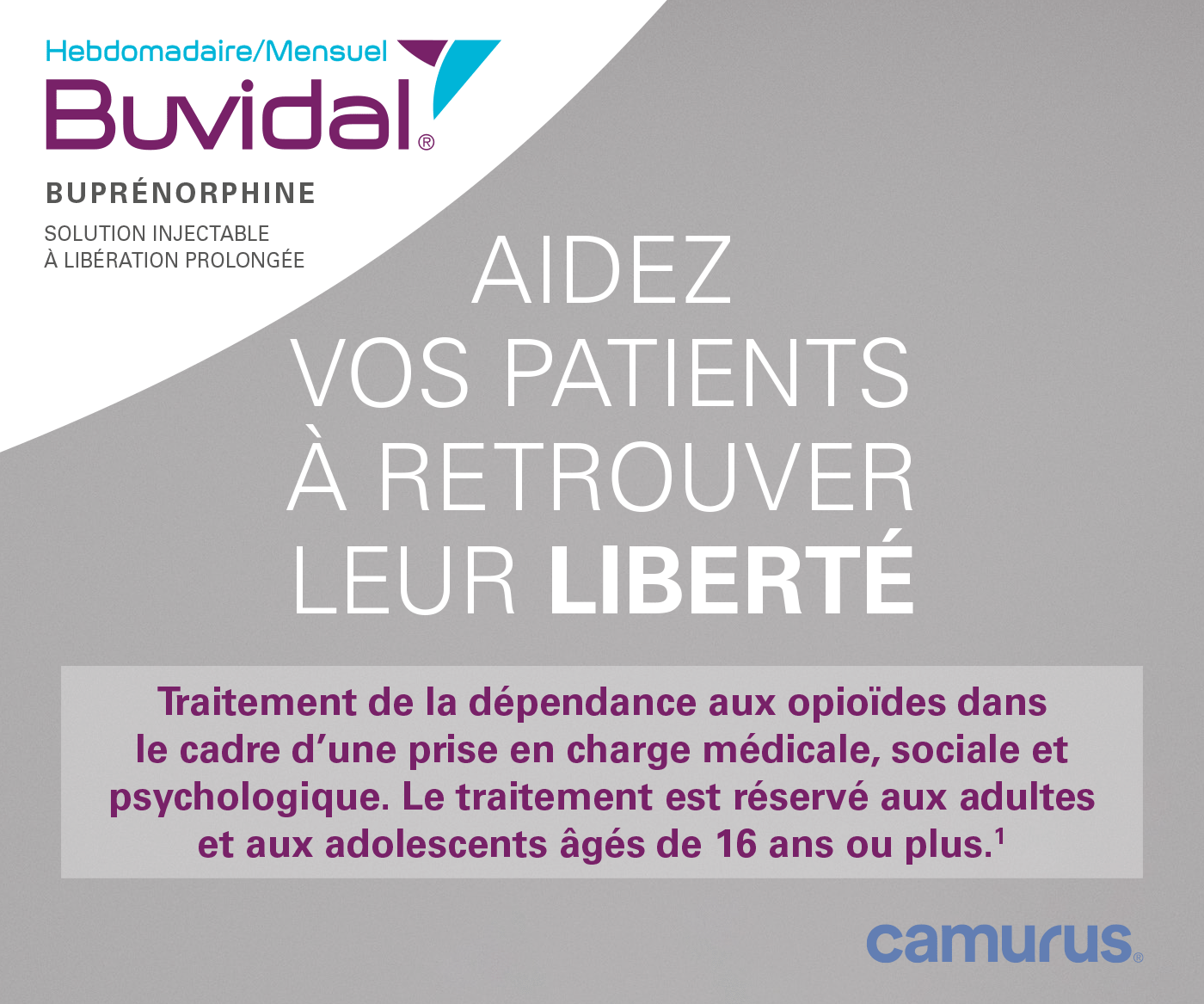 Depressive and Anxiety Symptoms Predict Obsessive and Compulsive Cravings Among Depressed Alcoholics
Depressive and Anxiety Symptoms Predict Obsessive and Compulsive Cravings Among Depressed Alcoholics
[Diffusé le 01-12-2020]
Source : Addictive Disorders & Their Treatment 2020; 19(4): 228-33
Miller, Michelle L.M.Res*; Cornelius, Jack R.Md, Mph+; Kirisci, Levent Phd++; Douaihy, Antoine MD+; Salloum, Ihsan M.Md, Mph, Dfapa[S]
*University of Miami Miller School of Medicine
[S]Department of Psychiatry and Behavioral Sciences, Division of Alcohol and Substance Abuse, University of Miami Miller School of Medicine, Miami, FL
+Department of Psychiatry, Western Psychiatric Institute and Clinic, University of Pittsburgh
++University of Pittsburgh School of Pharmaceutical Sciences, Pittsburgh, PA
The authors declare no conflict of interest.
Correspondence to: Ihsan M. Salloum, MD, MPH, DFAPA, Department of Psychiatry, University of Miami Miller School of Medicine, 1120 Northwest 14th Street, Room 1449, Miami, FL 33136 (e-mail: isalloum@med.miami.edu).
Online date: May 5, 2020
Les symptômes dépressifs et anxieux prédisent le craving obsessionnel et compulsif chez les sujets alcoolodépendants
Article commenté par : L'équipe éditoriale AddictoScope
Le craving alcoolique est souvent associée aux troubles de l’humeur et constitue un facteur prédictif de la consommation d'alcool chez les personnes alcoolodépendantes. Cependant, l'impact des troubles de l'humeur comorbides sur le besoin d'alcool et la dépendance à l'alcool restent globalement mal étudié. La présente étude prospective a donc été conduite afin d’examiner la valeur prédictive des symptômes dépressifs et anxieux sur le craving obsessionnel et compulsif lié à la consommation d'alcool des adultes alcoolodépendants atteints de troubles dépressifs majeurs.
Au total, 55 adultes (47% de femmes; âge moyen de 39,35 ans) alcoolodépendants et victimes de troubles dépressifs majeurs ont été évalués prospectivement sur une période de 6 mois. Tous les participants ont complété les échelles d'évaluation de Hamilton pour la dépression et l'anxiété, l'échelle de consommation obsessionnelle-compulsive (OCDS), l'échelle de dépendance à l'alcool (ADS) et l'indice de gravité de la dépendance (ASI).
Les symptômes dépressifs étaient positivement associés et fortement prédictifs des sous-échelles obsessionnelle (t = 10,40, p <0,0001) et compulsive (t = 10,72, p <0,0001) de l'OCDS. De même, les symptômes d'anxiété étaient également positivement et fortement prédictifs des sous-échelles obsessionnelle (t = 9,84, p <0,001) et compulsive (t = 10,43, p <0,0001) de l'OCDS. Les scores ASI-Alcool étaient significativement prédictifs des scores OCDS obsessionnels (t = 2,99, p = 0,004) et compulsifs (t = 2,12, p = 0,039) pour le modèle incluant les symptômes dépressifs. Egalement, pour le modèle incluant les symptômes d'anxiété, les scores ASI-Alcool étaient significativement prédictifs des scores OCDS obsessionnels (t = 3,07, p = 0,003) et tendaient vers la signification pour les scores OCDS compulsifs (t = 1,96, p = 0,05). Enfin, le sexe féminin (t = 2,09, p = 0,04) était significativement prédictif de scores OCDS obsessionnels plus élevés pour les modèles incluant les symptômes anxieux.
En conclusion, ces résultats suggèrent que les symptômes dépressifs et anxieux sont prédictifs des troubles obsessionnels et compulsifs liés au craving alcoolique chez les adultes alcoolodépendants atteints de troubles dépressifs majeurs comorbides. L'évaluation de la gravité des symptômes dépressifs et anxieux et de la consommation d'alcool dans ces populations devrait permettre d’identifier les personnes les plus susceptibles de ressentir des états de manque intense et à fort risque de rechute.
Abstract
Objectives Alcohol craving is often associated with mood symptoms and predicts alcohol use in individuals with alcohol dependence. However, little is known about the impact of mood symptoms on alcohol craving in comorbid mood disorders and alcohol dependence. This study examines the predictive value of depressive and anxiety symptoms for obsessive and compulsive aspects of alcohol craving in adults with comorbid major depressive disorder (MDD) and alcohol dependence.
Materials and methods Fifty-five adults [47% female; mean age of 39.35 (SD=8.80)] with Diagnostic and Statistical Manual for Mental Disorders-4th edition diagnoses of comorbid MDD and alcohol dependence were prospectively assessed over a 6-month period. They completed the Hamilton Rating Scales for Depression and Anxiety, the Alcohol Timeline Followback, the Obsessive-Compulsive Drinking Scale (OCDS), the Alcohol Dependence Scale (ADS), and the Addiction Severity Index (ASI). The linear mixed model analyses for repeated measures was used to test whether depressive and anxiety symptoms predict OCDS subscale scores.
Results Depressive and anxiety symptoms were strongly associated with obsessive and compulsive subscales of the OCDS. Baseline ASI-alcohol scores were associated with both the obsessive and compulsive and with the obsessive subscale scores in the predictive model including depressive symptoms, and that including anxiety symptoms, respectively.
Conclusions Results suggest that depressive and anxiety symptoms predict obsessive and compulsive aspects of alcohol craving in adults with comorbid MDD and alcohol dependence. Assessing the severity of depressive and anxiety symptoms and alcohol use in this population may identify those more likely to experience intense alcohol craving states and at increased risk of relapse.
Keywords: major depressive disorder; alcohol use disorder; dual diagnosis; craving

Copyright Wolters Kluwer (2021) powered by GNM Healthcare Consulting Group, LLC
Retour aux articles Version imprimable Annoter l'articleSupprimer de ma bibliographie Partager cet article
Ma bibliographie
Accédez à vos articles favoris, classez-les par dossiers ou encore exportez-les sous format ENDNOTE !
Rechercher
Besoin d'aide ? Recherche avancée- Éditoriaux
- Le point de l'expert
- Actualités & recommandations
- Addictions aux opiacés
- Autres addictions
- Actualités congrès
- Webinar Series
- Podcast Series















